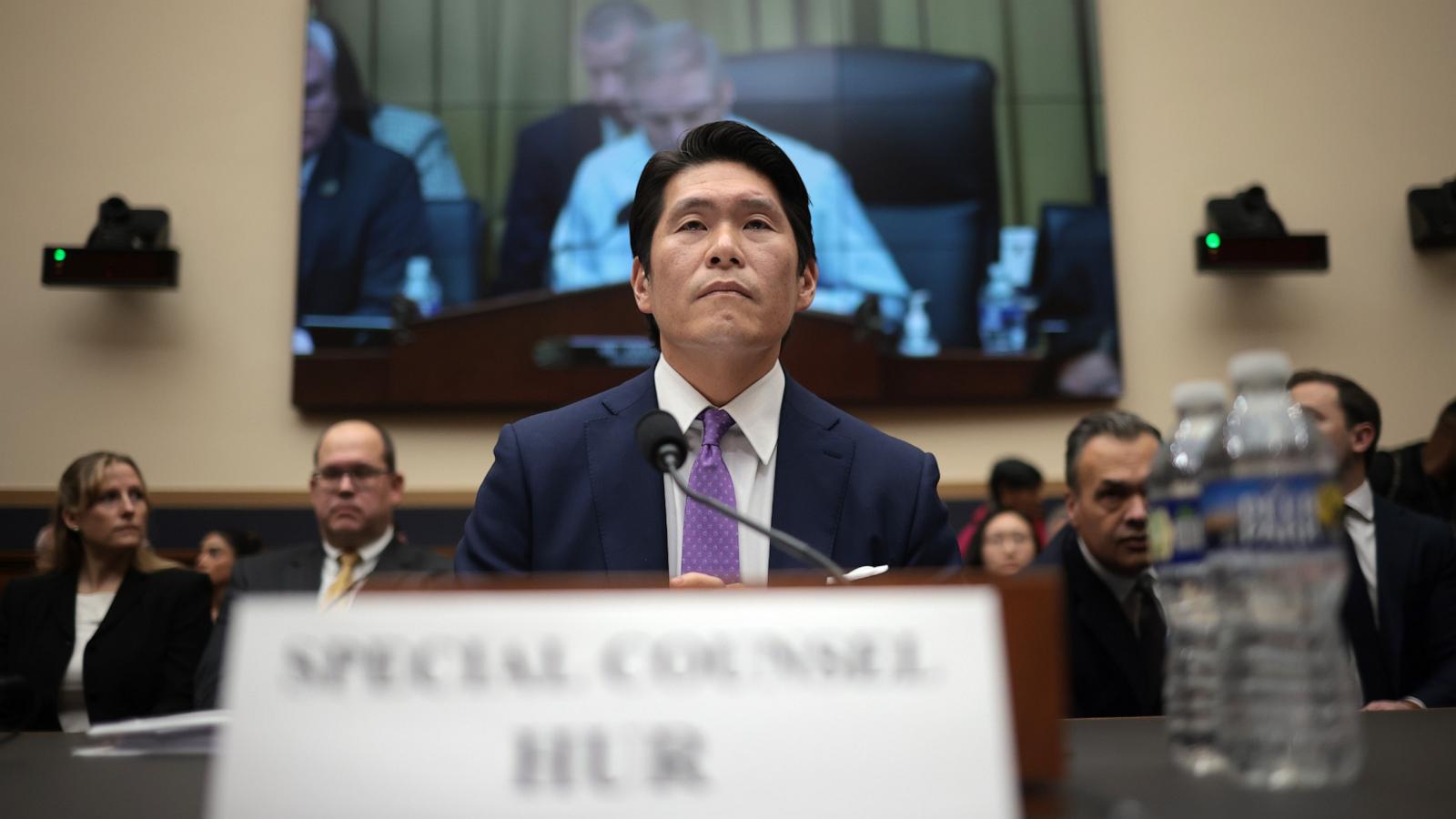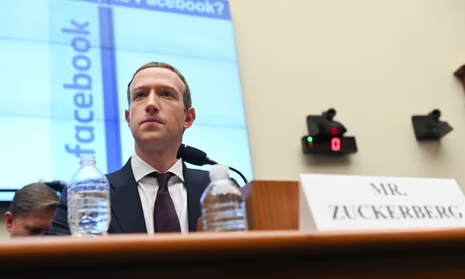
Washington: In his testimony on Tuesday before the House Judiciary Committee, former special counsel Robert Hur—who oversaw the investigation into President Biden’s handling of classified documents—will face harsh criticism from lawmakers on both sides of the aisle for his report, which ultimately supported the president but contained some very critical findings.

Hur faced criticism during a heated hearing from Republicans and Democrats alike, who disagreed with the former special counsel’s findings and charged him with being biased. Hur had few supporters in the room, as MPs started into a long litany of frequently contradictory criticisms on Tuesday. Comparisons between Mr. Biden and former President Donald Trump were made by members of both parties.
Republicans claimed that, in light of the accusations against Trump for purportedly holding onto confidential material, the decision to drop charges against Mr. Biden demonstrated a two-tiered legal system. Democrats retorted that Republicans were indifferent to the gravity of the charges made against Trump, drawing parallels between Mr. Biden’s choice to assist Hur’s investigation and Trump’s purported obstruction of multiple attempts by the government to obtain classified information. Hur was also charged with adding unwarranted criticism of the president to his report.
Though Hur’s investigation, which was made public last month, concluded that there was insufficient evidence to file charges against Biden, it did point out that there was proof “that President Biden willfully retained and disclosed classified materials after his vice presidency.” Hur came to the final conclusion that there was not enough evidence to prove the facts beyond a reasonable doubt.
The White House has angrily denied the report’s damning claims regarding the 81-year-old president’s memory. An in-depth account of the five-hour talk between Hur and Mr. Biden, as well as background information on some of the assertions that were included in the article, can be found in the transcript of their interview that CBS News examined last October. The president remembered many dates and facts with clarity, even though he did make mistakes with some, often recounting details or occurrences from years past.
The Hur hearing report.

Attorney General Merrick Garland appointed Hur, a former U.S. attorney and top Justice Department official in the Trump administration, as special counsel in the case. His employment with the Justice Department was terminated as a result of the report’s filing.
Leading the committee, House Republicans, have drawn attention to what they see as a disparity in treatment at the Justice Department following Trump’s indictment for allegedly mishandling sensitive data. Mr. Biden’s mental sharpness was another area they focused on.
The law was broken by Joe Biden. At the beginning of the hearing, Ohio Republican Rep. Jim Jordan stated that “Mr. Hur chose not to bring charges because he’s a forgetful old man who would appear sympathetic to a jury.”
A Republican representative from California, Rep. Tom McClintock, stated that the ruling went beyond a “very bright line” and that it represented a “glaring double standard.”
“The fact that the only person being prosecuted for this offense happens to be the president’s political opponent makes this an unprecedented assault on our democracy,” McClintock added.
https://twitter.com/i/status/1767648515671687388
Republicans used a conversation that took place between Mr. Biden and his book’s ghostwriter. One of the recordings that the investigators retrieved shows Mr. Biden told the ghostwriter in 2017 that he “just found all the classified stuff downstairs.” However, the president claimed to Hur’s group that he had no recollection of the remarks given to the ghostwriter and that he had not retained any materials that he knew to be classified. Hur stated on Tuesday that the remarks made by Mr. Biden is “inconsistent with the findings” of the investigation.
Democrats, meanwhile, criticized the former special counsel’s assessment of Mr. Biden’s recall and defended the president. The leading Democrat in the House, Rep. Jerrold Nadler of New York, compared Mr. Biden’s cooperation with the investigation and his mental clarity to those of Trump.
“As is his custom, I think that President Biden made a few grammatical errors during the interview. And after the interview was completed, Mr. Hur fully cleared President Biden, so I’m not sure any of that counts,” Nadler remarked. “And there is Donald Trump as well. What type of man throws away not just one, but hundreds of chances to get out of trouble? What does that reveal about his state of mind?”
Several Democrats criticized the former special counsel for what they perceived as supporting GOP narratives, despite the fact that Democrats supported the report’s findings.
“Despite clearing President Biden from being prosecuted, you used your report to trash and smear President Biden because he said in response to questions over a five-hour interview that he didn’t recall how he got the documents,” Rep. Hank Johnson, a Democrat from Georgia, said. “And you know that that would play into the Republicans’ narrative that the president is unfit for office because he’s senile.”
Hur was criticized by Democratic Representative from California, Rep. Adam Schiff, for his “political choice.”
“You were not born yesterday, you understood exactly what you were doing,” Schiff said. “It was a choice.”
Hur asserted that “partisan politics had no place whatsoever in my work” in defense of the probe and findings. The investigation’s conclusion that Mr. Biden “willfully retained” sensitive materials was underlined by him, while he also pointed out that no evidence “rose to the level of proof beyond a reasonable doubt.” Hur gave the explanation for his decision to not recommend criminal charges: it did not meet the level required to get a conviction at trial.
Along with outlining the reasons why he did not file charges against Mr. Biden, the former special counsel, also described how the president’s recollection needed to be clarified in the report.
Hur stated in his opening statement, “I understood that my explanation of this case had to include rigorous, detailed, and thorough analysis.” “In other words, I needed to show my work, just as I would expect any prosecutor to show his or her work in explaining the decision to prosecute or not.”
Hur said that the degree to which Mr. Biden’s recall was important to the report was “necessary, accurate, and fair.”
“I did not sanitize my explanation, nor did I disparage the president unfairly,” he responded. “I gave the attorney general an explanation of my choice and my thinking behind it. That’s what I had to do.”
Throughout the lengthy session, Hur deftly sidestepped many questions and avoided deviating from the subject matter of his report. He was mostly composed as he defended the findings of his report, treading carefully in stating that he did not “exonerate” Mr. Biden while standing by the decision that criminal charges were not required.
The report on Hur
Hur examined Mr. Biden’s management of classified records that ought to have been turned over to the National Archives but were still in his possession after he was appointed vice president, as documented in a report spanning 345 pages. According to the article, vital intelligence information was penned in notebooks and located in several places, including Mr. Biden’s homes and offices. The notebooks contained secret records about military and diplomatic strategy in Afghanistan.

Hur stated that the actions of Mr. Biden were “serious risks to national security, given the vulnerability of extraordinarily sensitive information to loss or compromise to America’s adversaries.” But he nevertheless stated that “addressing those risks when pursuing criminal charges, the only means available to this office, is not the proper remedy here.”
Upon reaching the conclusion that the evidence “does not establish Mr. Biden’s guilt beyond a reasonable doubt,” the special counsel raised the possibility that the documents had been inadvertently transported to various locations.
Over 170 interviews with over 150 witnesses—including the president himself—were conducted during the course of the year-long investigation.
The emphasis on Biden’s recollections
Hur’s report also included a number of observations about Mr. Biden’s memory that dominated news reports and provided Republican opposition with ammunition in the weeks that followed, when questions of the president’s age and mental capacity emerged during his reelection campaign.
As a result of the report’s allegations that the president’s memory “appeared to have significant limitations,” the team of the special counsel concluded that a jury might view Mr. Biden as a “well-meaning, elderly man with a poor memory.” In addition, among other things, the report stated that Mr. Biden was unable to recollect the year his son Beau Biden passed away or the times he was vice president.
Regarding the findings, Mr. Biden stated in February that he was “particularly pleased to see the senior special counsel make clear there are stark differences between this case and Donald Trump.” However, Mr. Biden then stated “It even mentions a date I can’t recall when my kid passed away. How on earth is he allowed to bring that up? To be honest, I felt it was none of their dang business when I was asked the question.

The president could not pinpoint the exact year, but he was able to determine the month and date, according to the transcript of Mr. Biden’s interview. “In which month did Beau pass away? Oh God, it’s May 30th,” Mr. Biden queries the group.
While Biden supporters referred to the descriptions as “inflammatory,” the White House counsel’s office requested that the special counsel change some terminology in the report. President Bob Bauer’s personal attorney, Bob Bauer, said on “Face the Nation” following the report’s release that it “went off the rails,” referring to it as a “shoddy work product” and asserting that aside from the legal analysis, there were factual errors and improper commentary.
The Hur report’s description of the president’s mental acuity is still being used by Mr. Biden’s detractors, so House Republicans on the committee emphasized the report’s memory-related components at the hearing on Tuesday.
As Mr. Biden sought four more years in office concerns over his age surfaced, leading to harsh criticism of the former president following the publication of the report. For the time being, though, some worries about his suitability for the position appear to have subsided after his passionate State of the Union speech last week.



















